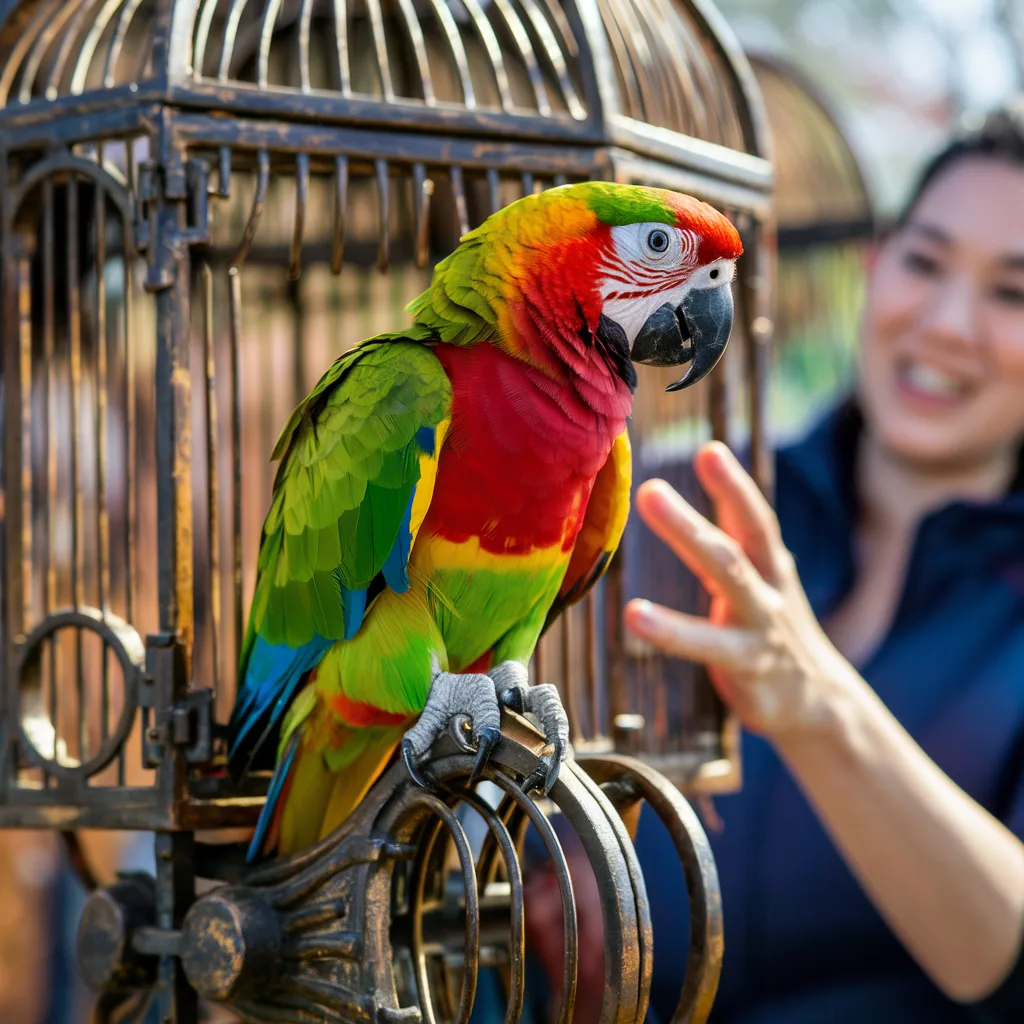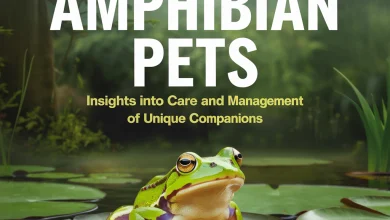The Colorful World of Parrots: A Guide to Keeping these Vibrant Birds as Pets

Parrots are some of the most fascinating and charismatic pets you can have. With their striking colors, playful personalities, and remarkable ability to mimic human speech, they have captured the hearts of bird lovers around the world. However, owning a parrot comes with unique challenges and responsibilities. Here’s everything you need to know about keeping parrots as pets and ensuring they lead happy, healthy lives in your care.
Why Parrots Make Great Pets
1. Intelligent and Social
Parrots are highly intelligent birds that thrive on social interaction. They enjoy spending time with their human flock and can form strong bonds with their owners, often displaying affectionate behaviors such as head bobbing, wing flapping, and vocalizations.
2. Beautiful and Colorful
One of the most striking features of parrots is their vibrant plumage. From the bright reds and yellows of macaws to the iridescent greens and blues of parakeets, parrots are visually stunning birds that can add a pop of color to any home.
3. Entertaining and Talkative
Parrots are natural comedians and love to show off their playful antics. Many species are also capable of mimicking human speech and sounds, making them excellent companions for those who enjoy a bit of conversation.
4. Long Lifespan
Parrots are known for their long lifespans, with some species living up to 80 years or more. This means that owning a parrot is a long-term commitment that can span several decades, so it’s important to be prepared for the responsibility.
Choosing the Right Parrot Species
There are many different species of parrots, each with its own unique characteristics and care requirements. Here are a few popular species that are commonly kept as pets:
- Budgerigar (Budgie): Budgies are small parrots with big personalities. They are relatively easy to care for and are known for their playful and curious nature.
- Cockatiel: Cockatiels are gentle and affectionate birds that are known for their whistling and singing abilities. They are great for first-time bird owners.
- African Grey Parrot: African Greys are renowned for their intelligence and ability to mimic human speech. They require a lot of mental stimulation and social interaction.
- Macaw: Macaws are large, colorful parrots that are full of personality. They require a spacious cage and plenty of room to spread their wings.
Setting Up a Parrot-Friendly Environment
1. Spacious Cage
Provide a large, sturdy cage with plenty of room for your parrot to move around and stretch its wings. The cage should be equipped with perches of varying sizes and textures to keep your parrot’s feet healthy.
2. Toys and Enrichment
Parrots are intelligent birds that need mental stimulation to prevent boredom. Provide a variety of toys, such as puzzle feeders, chew toys, and climbing structures, to keep your parrot entertained and engaged.
3. Healthy Diet
A balanced diet is essential for your parrot’s health and well-being. Offer a variety of fresh fruits, vegetables, nuts, seeds, and pellets to ensure they receive the necessary nutrients.
4. Social Interaction
Parrots are social birds that thrive on interaction with their human flock. Spend time with your parrot every day, talking to them, offering treats, and engaging in playtime to strengthen your bond.
Daily Care and Maintenance
1. Grooming
Regular grooming is important for your parrot’s health. Trim their nails and wings as needed, and provide opportunities for bathing or misting to keep their feathers clean and healthy.
2. Health Check
Monitor your parrot’s health closely and watch for signs of illness, such as changes in appetite, behavior, or droppings. Regular check-ups with an avian veterinarian are also recommended.
3. Training and Socialization
Parrots can be trained to perform simple tricks and behaviors, which can be both fun and mentally stimulating for them. Positive reinforcement techniques work best, as parrots respond well to praise and rewards.
4. Safety Precautions
Parrots are curious and adventurous birds that can get into mischief if left unsupervised. Ensure your home is bird-proofed, with no access to toxic plants, chemicals, or small objects that could be swallowed.
Conclusion
Owning a parrot can be a rewarding and enriching experience, but it also requires commitment, patience, and a lot of love. By providing a safe and stimulating environment, a healthy diet, and plenty of social interaction, you can ensure that your parrot lives a long, happy, and fulfilling life as part of your family. Embrace the colorful world of parrots and enjoy the unique bond that comes from sharing your life with these intelligent and captivating birds.



